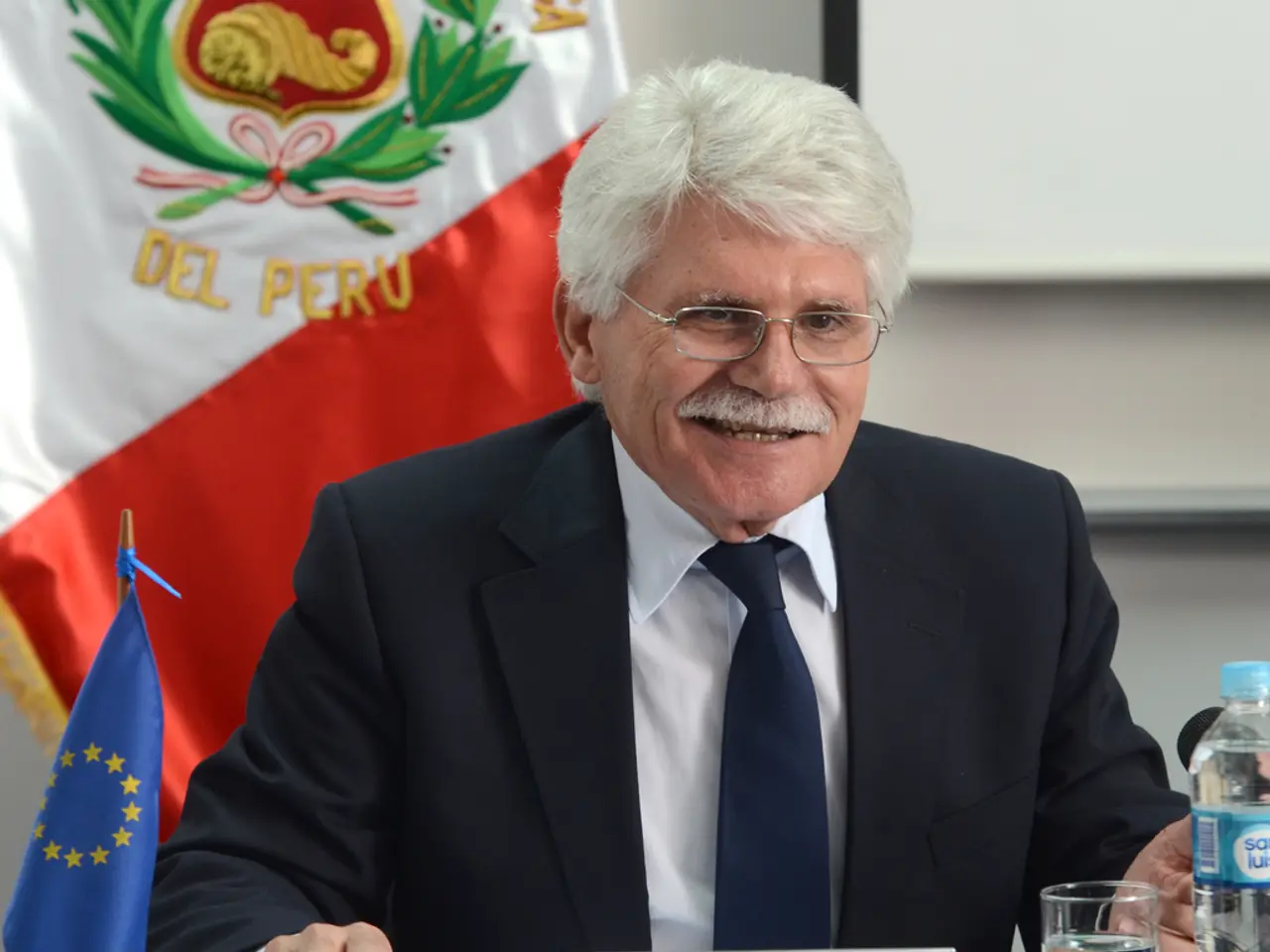Peru's president endorses military offenses pardon legislation into a law
Peru's Amnesty Law Sparks International Outcry
Peru's President Dina Boluarte signed an amnesty law on August 13, 2025, granting blanket immunity to members of the Armed Forces, police, and self-defense groups accused or convicted of crimes committed during Peru’s internal armed conflict (1980–2000). The law has sparked controversy and international condemnation, as it effectively provides impunity for serious allegations, including human rights violations and crimes against humanity.
The amnesty law halts ongoing trials, voids sentences against these individuals, and mandates the release of those over age 70 convicted for these crimes. This move undermines decades of efforts to ensure justice and accountability for atrocities committed during this period.
The enactment of the amnesty law directly conflicts with international human rights law and orders from the Inter-American Court of Human Rights (I/A Court H.R.). The court has instructed Peru to refrain from implementing such amnesty measures and to ensure investigation and prosecution of abuses. The court’s rulings emphasize the illegality of shielding perpetrators of extrajudicial executions, forced disappearances, or torture by amnesty laws.
The amnesty law benefits uniformed personnel accused or convicted of crimes committed during fighting against the Shining Path and Tupac Amaru rebel groups. According to Peru's Truth and Reconciliation Commission, there are more than 4,000 clandestine graves in the country as a result of two decades of political violence.
The law has been condemned by Human Rights Watch, the United Nations High Commissioner for Human Rights, the Inter-American Commission on Human Rights, and other human rights groups. These organizations view the law as a betrayal of victims and a setback for rule of law and human rights protection in Peru.
The government has disregarded these international legal obligations and calls for justice, proceeding with the law despite explicit warnings. The UN experts, who released a report last month urging Boluarte's government to veto the amnesty law, argue that Peru has a duty to investigate, prosecute, and punish gross human rights violations and crimes under international law committed during the conflict.
During the amnesty law ceremony at the presidential palace, President Boluarte stated that the law is a tribute to the military and self-defense groups that participated in the fight against terrorism. However, the Inter-American Court of Human Rights (IACHR) has urged Peru to suspend or refrain from applying the amnesty law, as it may affect victims' rights.
The amnesty law could affect 156 decided cases and more than 600 ongoing cases over crimes committed during a 20-year span. Approximately 70,000 people were killed during this fighting, according to official figures. The statute of limitations effectively shut down hundreds of investigations into alleged crimes committed during the fighting.
The new law also benefits former president Alberto Fujimori, who was jailed for atrocities but released from prison in 2023 on humanitarian grounds. The statute of limitations was enacted despite the IACHR's criticism by Peru's President, Boluarte, and despite the UN experts' arguments.
In summary, the amnesty law currently:
- Grants immunity to military, police, and self-defense group members involved in serious abuses during the internal conflict.
- Halts and cancels judicial investigations and sentences related to these abuses.
- Contravenes Peru's obligations under international human rights law and court rulings.
- Draws strong criticism from international and local human rights organizations as undermining accountability and victims' rights.
- Affects more than 600 ongoing cases and 156 decided cases over crimes committed during the conflict.
- Has been condemned by various human rights organizations, including Human Rights Watch, the United Nations High Commissioner for Human Rights, and the Inter-American Commission on Human Rights.
- Benefits former president Alberto Fujimori, who was jailed for atrocities but released from prison in 2023 on humanitarian grounds.
- Was enacted despite the IACHR's urging Peru to suspend or refrain from applying the amnesty law.
- Was enacted despite a report by UN experts last month urging Boluarte's government to veto the amnesty law.
- Has resulted in the death of approximately 70,000 people during the conflict.
- The statute of limitations ceremony was not mentioned in the provided text.
- The international community is strongly criticizing Peru's amnesty law due to its potential for providing impunity to military, police, and self-defense group members involved in human rights violations and crimes against humanity during war-and-conflicts.
- The enactment of the amnesty law contradicts international human rights law and orders from the Inter-American Court of Human Rights, placing Peru at odds with general-news and crime-and-justice norms that emphasize investigation and prosecution of abuses.
- The condemnation of the amnesty law by organizations such as Human Rights Watch, the United Nations High Commissioner for Human Rights, and the Inter-American Commission on Human Rights has inferred it as a setback for rule of law and human rights protection in Peru's politics.





